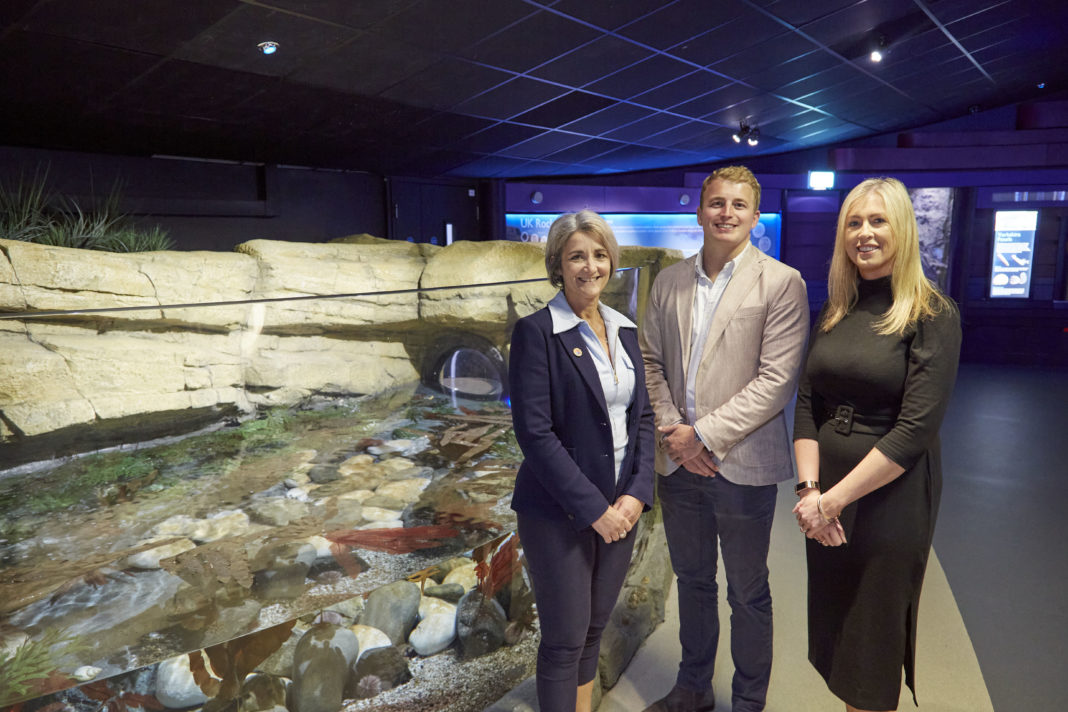Two companies with a combined history of more than 320 years joined forces at Humber Business Week to trace the roots of their corporate culture back over three centuries.
Rollits LLP, which dates back to 1841, invited the 150-old Rix Group to share the stage at The Deep and explore why corporate culture matters and how to build it.
Introducing Caroline Neadley from Rollits and Harry Rix from the Rix Group, facilitator Diana Taylor, Managing Director of Future Humber and Bondholders, said both speakers demonstrated the journeys that they are taking with their companies.
Diana also set the scene by emphasising the importance of a good culture when it comes to recruiting and retaining staff, with lack of trust, loss of reputation and low engagement among the perils lying in wait for those businesses that fail to build their own corporate culture.
Harry, the Chief Digital Officer of Rix Group, charted the development of the company from 1873 to the modern day with a £750m turnover and an organisation of 17 different brands employing 800 people.
Activities including shipping, fuel and renewables, leisure homes, property, vehicles and software development. But it all started with Robert Rix as a merchant who worked on the Tees and then returned to Hull.
Harry said there is much more to the Rix culture now than the “graft and determination” of their founder and the leadership which he demonstrated from the outset.
The current senior leadership team set a vision designed to overcome the difficulties of managing the culture of so many varied businesses and to protect their autonomy which was essential to their success.
This process, including getting input from staff, led to a vision of building a stable business for future generations, setting a mission to create an environment in which people flourish and the businesses thrive, and values including curiosity, passion and responsibility.
Rix Group has adopted a new performance management programme to go with new, innovative businesses and modern new offices. New roles in the business include a lead on environmental, social and governance (ESG), with a focus on issues including carbon emissions.
Harry said: “Culture is never a finished project – it’s a life’s work.”
Caroline, a Partner at Rollits and a specialist in employment law, told of the proud history of a firm which has always played a leading role in society and the community. She said the firm has been embedded in the culture of Hull throughout its 182-year history and today still demonstrates its original core values of integrity and trust.
Caroline set out three tenets by which the firm lives – community engagement, leadership, and relationships and engagement.
She said: “We spend a lot of our time at work so you need to have the right leadership in the right environment with the right processes. We are all just custodians of the firm and it is our responsibility to make sure the partnership survives for future generations to come.”
Caroline said a step change in building the modern day culture at Rollits was the move to new premises at Citadel House in High Street in 2016 that brought with it the introduction of an open plan office environment. Another step was the creation of the firm’s Employee Forum, which drives a programme of social activities and promotes events around physical and mental health and wellbeing.
She said: “You can never take your eye off the ball with workplace culture. A healthy corporate culture takes time to build but if you do it right your business will grow and it will be sustainable generation after generation.”
Harry said the difficult recruitment market was a key driver for Rix in developing its culture and he identified communications as one of the biggest challenges. He cited the example of his own task as a sixth generation family member entering the business.
He said: “I have to let people know who I am and what I am trying to achieve. You have got to put yourself in the firing line and make yourself accountable.”
Caroline discussed the need to be prepared to be tough in the event of a persistently poor attitude among people who resist change.
She said: “It can drag everybody down so sometimes it is necessary to be tough. It’s likely one of two things will happen – either the individual will pull their socks up and embrace your culture or they will leave because they know their behaviour and attitude is not going to be tolerated and it’s not the right place for them.”
Caroline’s top culture tip is to keep at it: “If you get something wrong accept you are wrong and make it right. It’s not something you can do overnight.”
Harry said it is essential to be authentic: “Don’t create the mission and values unless you believe it.”
Diana told the audience of the importance of understanding the difference that culture can make to a business.
She said: “It will help you recruit and retain a good team and this is where just pay and benefits don’t cut it. Good business needs good people, connected in a really good way and that fundamentally is the culture you are looking for. Your culture is your USP and your commercial advantage.
“It’s really easy to create a culture – take your eyes off it and it happens right in front of you. But it might not be the culture you want.”









